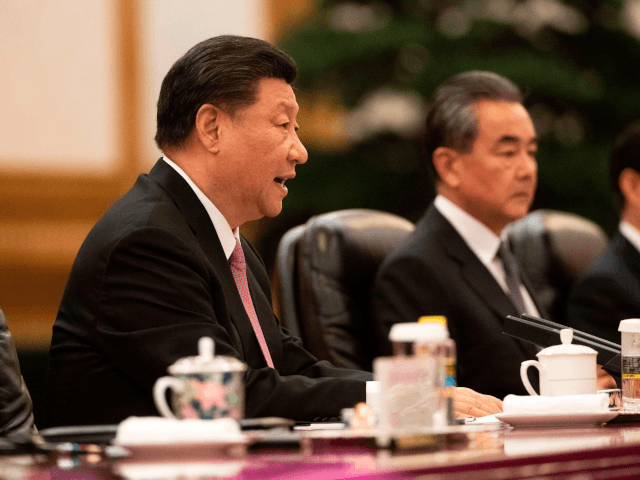China’s People’s Daily on Monday strove to portray the U.S.-China trade war as a trick pulled by the United States to “establish an imaginary overseas enemy” and distract from the “long-standing structural issues of its own economic policies.”
That was the assessment of Russian Minister for Economic Development Maksim Oreshkin, quoted unironically as an authority by the Chinese state-run newspaper. Every system in the world has its problems, but few sane economists would trade the American economy for that of China, much less Russia.
The People’s Daily piece was a grab bag of negative quotes about U.S. trade policy from every available source, even if the Chinese editorialists had to dig back three or four years to find some of them.
The core thesis of the editorial was a restatement of Beijing’s long-standing complaint that U.S. criticism of China’s trade policies is unfair, ginned up either as an underhanded effort to disadvantage Chinese companies like Huawei or as a political ploy to distract the American public from their own problems:
Over the recent years, the US has issued a series of documents that targeted China as a strategic competitor, including the National Security Strategy, the National Defense Strategy, and the Military and Security Developments Involving the People’s Republic of China. Such a move exposed the anxiety of the US strategy-wise.
The US in the past months has been abusing national power to exert unreasonable pressure on Chinese technology companies including Huawei, and slowing the approvals for Chinese staff applying for senior engineer jobs at US semiconductor companies. The approval that used to be finished within only a few weeks now takes as long as six to eight months.
The US, showing hegemony to other countries, is also exposing its insecurity and lack of confidence to the fullest. Even the US public believes it won’t help at all for the US to seek “imaginary enemies”.
Unsurprisingly, not a word of the People’s Daily editorial addressed any of the actual U.S. complaints about Chinese technology theft, market manipulation, protectionism, or debt-trap diplomacy. Mention was made of the negative impact on the global economy by the trade war, but China was, of course, held blameless.
Nothing was said about emerging reports that Chinese negotiators scuttled a deal to end the trade war in late April by reneging on promises they made earlier, a charge the Chinese have thrown right back at the Americans without countering it. The issues mentioned by both sides in that volley of accusations and counter-accusations are not imaginary, but concern very real issues like China’s censorship of the Internet and its currency manipulation.
ABC News noted on Tuesday that Chinese media has gone into overdrive pushing nationalist propaganda at the behest of Chinese Communist Party leader Xi Jinping, who apparently convinced the Communist Politburo last week to dig in and resist American demands no matter the cost.
Xi has ordered a growing boycott on American media products as well, similar to the approach China took with South Korea during a time of tense relations in 2016:
The series finale of HBO’s Game of Thrones, has yet to be broadcast in China. A hour before the show was due to begin, HBO’s content partner in China, Tencent, said there was a problem on a “media transmission problem.” But The Wall Street Journal disputed that account, and quoted an unnamed HBO spokesperson that it had been blocked because of the trade dispute. A spokesman for Tencent, Han Chaowei, told ABC News that the company has no further comment on the issue.
Entgroup, which tracks Chinese box office receipts, reported that “Avengers: Endgame,” released by ABC News’ parent company The Walt Disney Co., has been denied a routine theatrical extension, despite being the highest-grossing American film in Chinese box office history, earning more than $611 million in less a month. A China Film Distribution Company employee who would only give his surname, Chen, confirmed to ABC News that there will be no extension, and that no reason has been given.
Boycotting American media will prevent Chinese citizens from hearing anything but Beijing’s side of the story and minimize admiration and empathy for American culture.
Perhaps more importantly, American media organizations that already hate President Donald Trump will begin to feel the first rasp of China’s noose around their necks – a little reminder that if the trade war continues, Hollywood could lose Chinese financing for its projects and access to the lucrative Chinese market.

COMMENTS
Please let us know if you're having issues with commenting.